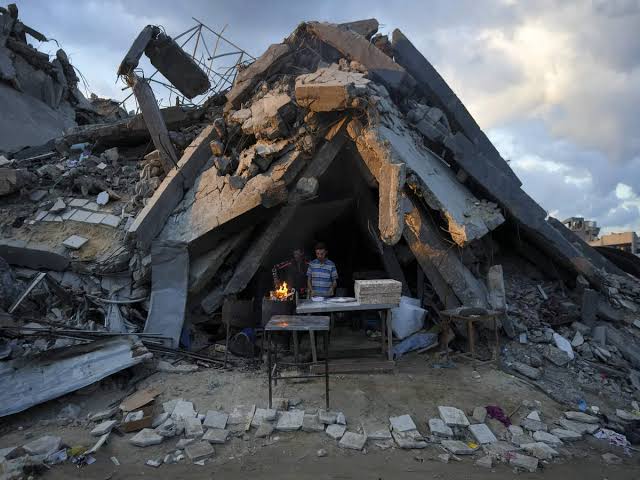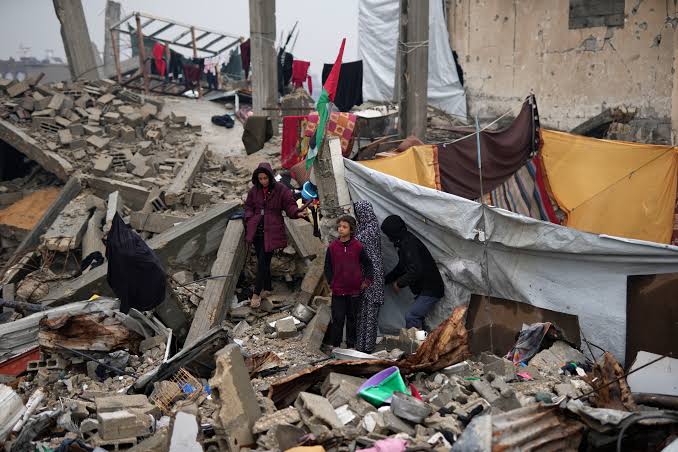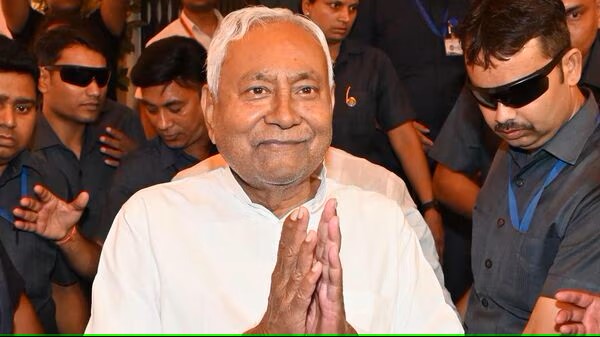Tensions in Gaza have escalated as Hamas announced the suspension of the planned release of Israeli captives, citing multiple ceasefire violations by Israel. The move comes amid an already fragile truce agreement between the two sides, raising concerns about the future of the ongoing ceasefire and the broader prospects for peace in the region.
 In a statement on Monday, Abu Obeida, the spokesperson for Hamas’s armed wing, the Qassam Brigades, declared that captives would remain in place until Israel fulfills its commitments under the agreement. He accused Israeli forces of repeated violations, including obstructing the return of displaced Palestinians to northern Gaza, targeting civilians with gunfire and shelling, and restricting the flow of humanitarian aid. Despite these alleged breaches, he reaffirmed Hamas’s commitment to honoring the ceasefire as long as Israel upholds its part of the deal.
In a statement on Monday, Abu Obeida, the spokesperson for Hamas’s armed wing, the Qassam Brigades, declared that captives would remain in place until Israel fulfills its commitments under the agreement. He accused Israeli forces of repeated violations, including obstructing the return of displaced Palestinians to northern Gaza, targeting civilians with gunfire and shelling, and restricting the flow of humanitarian aid. Despite these alleged breaches, he reaffirmed Hamas’s commitment to honoring the ceasefire as long as Israel upholds its part of the deal.
The truce, which has been in place for several weeks, was designed to facilitate the exchange of captives. So far, Hamas has released 21 Israelis, while Israel has freed over 730 Palestinian prisoners. Another swap was scheduled for Saturday, with three Israeli captives set to be exchanged for hundreds of Palestinian detainees. However, with Hamas’s latest announcement, that exchange is now uncertain.
Israel’s Defense Minister, Israel Katz, swiftly condemned Hamas’s move, labeling it a direct violation of the agreement. In response, he ordered the military to remain on high alert, preparing for any potential escalation in Gaza. Meanwhile, Israeli Prime Minister Benjamin Netanyahu reiterated his determination to continue military operations against Hamas, signaling that the war is far from over.
The situation has been further complicated by statements from U.S. President Donald Trump, who recently proposed that the United States should take “ownership” of Gaza. His remarks have drawn sharp criticism from Palestinian leaders, who accuse Washington of enabling Israel’s long-term occupation plans. The ceasefire, which is set to expire on March 1, was intended to be the first phase of a broader peace process. However, with ongoing ceasefire violations and heightened tensions, the prospects for a lasting resolution remain uncertain.
Palestinian politician Mustafa Barghouti condemned Israel’s actions, claiming that they are not only violating the agreement but also attempting to use the ceasefire as a tactical pause before resuming military operations. He warned that if Israel continues on its current path, the truce could collapse entirely, leading to further bloodshed and devastation in Gaza.
As the deadline for the next phase of the agreement approaches, both sides are locked in a tense standoff. The coming days will be crucial in determining whether the ceasefire can be salvaged or if hostilities will resume, plunging the region back into violence and uncertainty.




